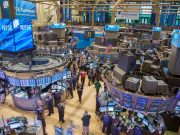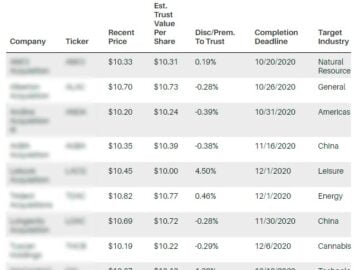One of the biggest threats to corporate America is ransomware. The growing possibility of losing access to essential or confidential digital property is a nightmarish scenario for executives as the financial consequences can be enormous.
But it’s not just major companies that are at risk. We are all threatened with the loss of personal data security as hackers continue to develop new ways to exploit networks, software, and the array of evolving technology services. As the world advances to become more digitized, so too do its threats.
These attacks are among several tailwinds for investors in cybersecurity stocks, says Morningstar senior equity analyst Mark Cash. The “heightened threat environment, networking changes due to the pandemic changing how security works, legislation ramping up fines for miscues, spending becoming proactive and commanding a larger portion of IT budget, and these headline-grabbing breaches all help the demand,” he says.
Cybersecurity is a young, quickly evolving industry, so betting on individual stocks can be especially risky. If you’re looking to benefit from this trend, why not consider owning a broad spectrum of cybersecurity stocks through an exchange-traded fund (ETF)?
In this article, we’ll highlight two ETFs focused on companies that provide protection against cyberattacks.
First Trust NASDAQ CEA Cybersecurity ETF (CIBR)
CIBR tracks an index of companies engaged in the cybersecurity segment of the tech and industrial sectors. To make the cut, a company must be classified as a cybersecurity company by the Consumer Technology Association (CTA) and have a minimum market cap of $250 million. This means it holds software and networking companies, but also branches out from the tech sector into more diversified industries like aerospace & defense. This slightly expanded focus is the primary distinction between CIBR and similar funds, most of which have small, tech-dominated portfolios.
To ensure liquidity in the underlying stocks, which is a concern for ETFs that invest in small-cap names, companies must have a minimum free float of 20%. The index then weights stocks based on their underlying liquidity and imposes caps on how large any one security can become. The portfolio includes familiar names like Cisco Systems, Akamai, and NortonLifeLock.
First Trust NASDAQ CEA Cybersecurity ETF (CIBR) Summary
- Weighted Average Market Cap $42.02B
- Price / Earnings Ratio 81.51
- Price / Book Ratio 7.94
- YTD Total Return 10.26%
- Yield 0.2%
- Expense Ratio 0.6%
- Net Assets 4.06B
- Number of Holdings 40
- Top Holdings Cisco (CSCO), Accenture (ACN), CrowdStrike (CRWD)
Global X Cybersecurity ETF (BUG)
BUG provides exposure to companies involved in developing and managing security protocols, preventing intrusion and attacks to systems, networks, applications, computers, and mobile devices. Eligible securities are those in emerging and developed countries and are selected based on the revenue that must be generated from cybersecurity activities at least 50%. The fund also invests in ADRs and GDRs based on such securities.
BUG tracks the Indxx Cybersecurity Index, which gauges companies’ performance within the cybersecurity industry. The index weights its constituents by market cap, but each is subject to caps, thereby limiting concentration on large-cap companies and increasing exposure to other companies. The top 40 cybersecurity companies will form the final index. The index is reconstituted and re-weighted semi-annually.
Global X Cybersecurity ETF (BUG) Summary
- Weighted Average Market Cap $14.70B
- Price / Earnings Ratio 621.95
- Price / Book Ratio 70.43
- YTD Total Return 6.48%
- Yield 0.47%
- Expense Ratio 0.5%
- Net Assets 635.77M
- Number of Holdings 33
- Top Holdings Fortinet (FTNT), Palo Alto Networks (PANW), CrowdStrike (CRWD)
Should you invest in BUG right now?
Before you consider buying BUG, you'll want to see this.
Investing legend, Keith Kohl just revealed his #1 stock for 2022...
And it's not BUG.
Jeff Bezos, Peter Thiel, and the Rockefellers are betting a colossal nine figures on this tiny company that trades publicly for $5.
Keith say’s he thinks investors will be able to turn a small $50 stake into $150,000.
Find that to be extraordinary?
Click here to watch his presentation, and decide for yourself...
But you have to act now, because a catalyst coming in a few weeks is set to take this company mainstream... And by then, it could be too late.
Click here to find out the name and ticker of Keith's #1 pick...













